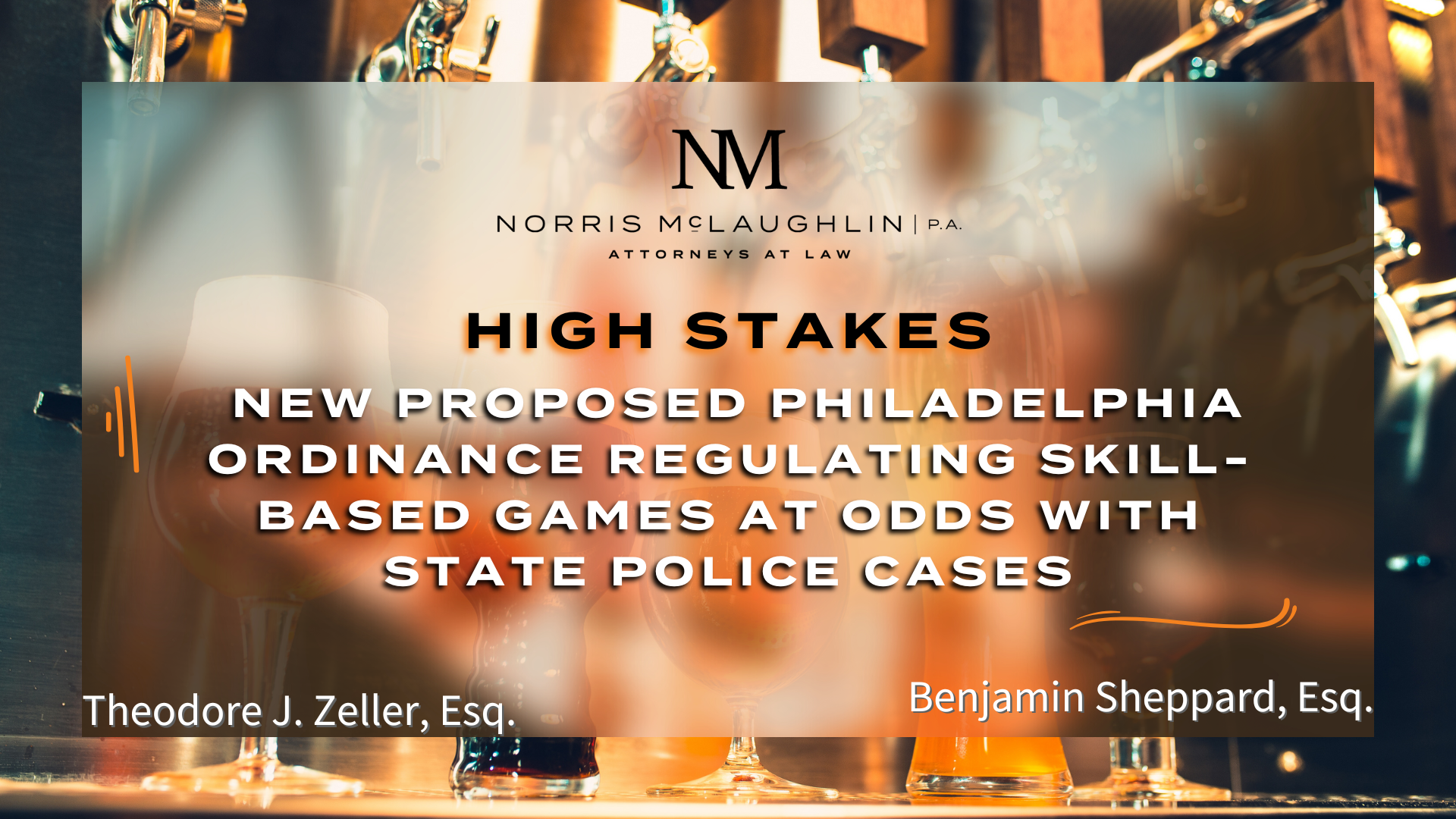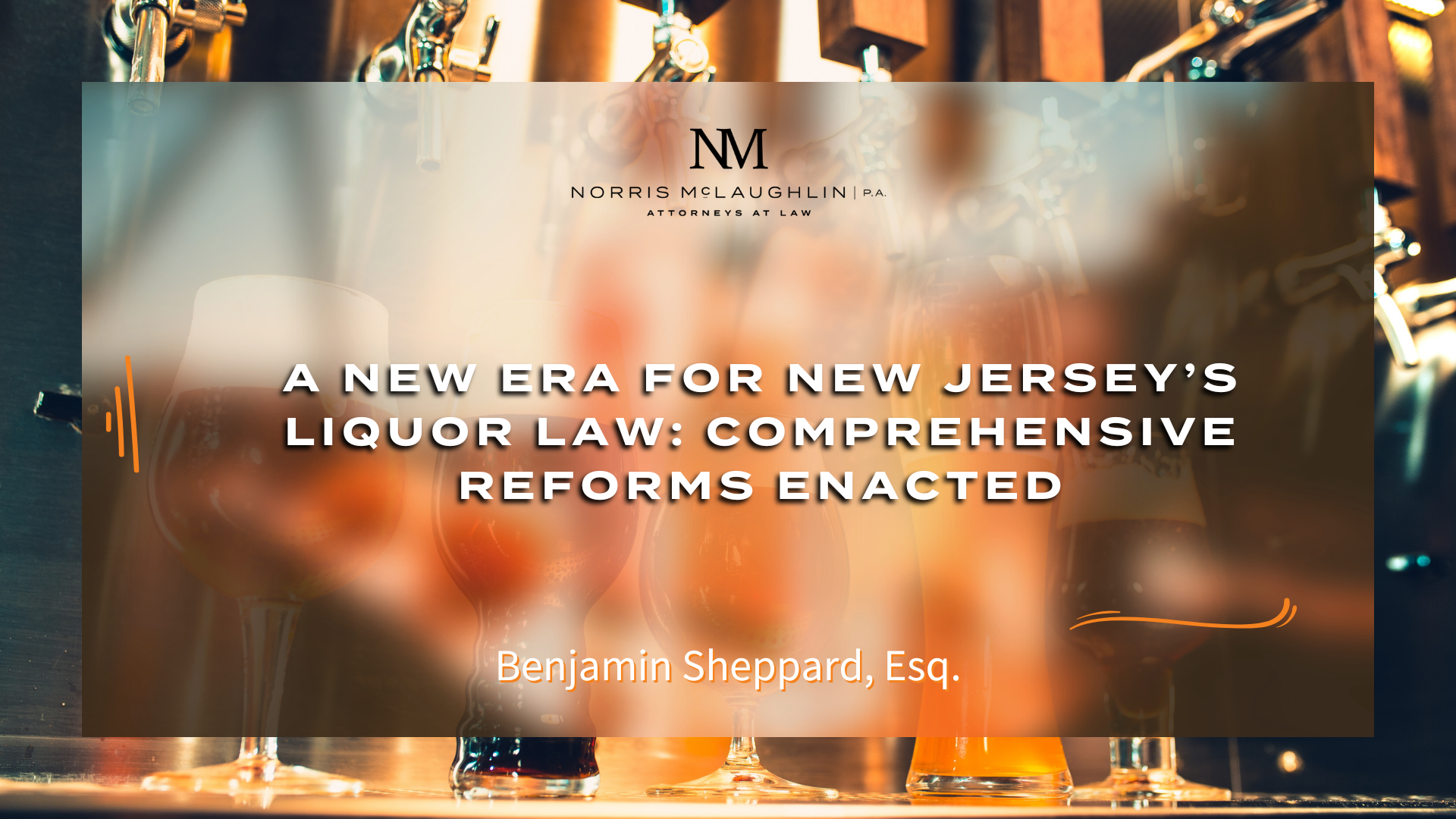Surprise – Your Liquor License Can Be Suspended

Since the passage of Act 44 of 2017, Pennsylvania establishments which serve alcohol are now in danger of being shut down by unannounced compliance checks performed by the Pennsylvania Liquor Control Board. These checks can suspend a liquor license immediately at the time of the inspection. The suspension will remain in place until the deficiencies have been corrected and the Pa.L.C.B. inspector returns to verify the correction.
Previously, a liquor license could only be suspended through Adjudications handed down from Administrative Law Judges, or through nuisance abatement laws, including the Pa.L.C.B.’s refusal to renew a license or a § 6-611 action under the Liquor Code. Both of these forms of suspension provide notice and hearing, unlike the surprise inspections now allowed since the 2017 modifications to the Liquor Code.
As a result of the enactment of Act 44, the Pa.L.C.B. issued an Investigation & Suspension Process Advisory Notice which was released on November 28, 2017, and clarified the process and requirements set forth in Act 44 of 2017. Act 44 established a process for immediate suspensions of licenses in establishments which fail to meet the criteria for “seating, square footage, food, health license or room requirements.” Some of these requirements are very specific, such as those pertaining to minimum square footage or seating availability. Failure to follow these requirements can result in an unwary licensee losing his or her right to serve alcohol.
For example, if a restaurant with a liquor license is found to have insufficient stores of food for 30 people during an unannounced visit, or the inspector determines that the type of food served is unacceptable, the inspector will take pictures of the deficiency, and provide a copy of the checklist used to flag the establishment. If the inspector then finds that the issue cannot or will not be corrected in a short period of time, a notice of immediate suspension of operating privileges will be posted on-site. The restaurant can then request a follow-up inspection to restore its operating privileges. If the inspector is still unsatisfied, the establishment must then file an appeal in court. Only after winning an appeal would the restaurant be able to lift the suspension.
Beware Liquor Licensees. The Pennsylvania Liquor Control Board, usually accompanied by a Pennsylvania State Police, Bureau of Liquor Control Enforcement agent, have been granted power to shut down businesses before they have a chance to respond or correct the issue and without any due process, i.e., a notice and hearing. Establishments which are not currently on the ever-changing regulations may find themselves put out of business without warning.
For information regarding national and state liquor law matters or general manufacturing and distribution advice, please contact our Liquor Law, Licensing, Manufacturing, and Distribution Practice Group: Liquor Law Department Chair Theodore J. Zeller III, Esquire (tzeller@norris-law.com); David C. Berger, Esquire (dberger@norris-law.com) for Pennsylvania and New Jersey retail and manufacturing licensing; or contact our offices at 610-391-1800.




